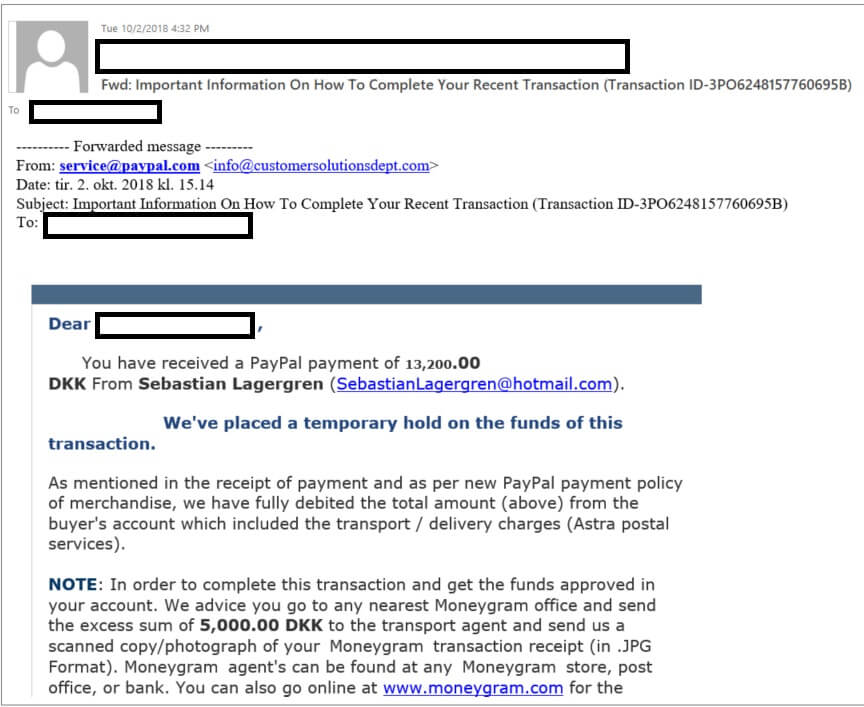Dating Scams In Usa Duped In Person

More than 200,000 people in Britain may have been conned by fraudsters posing as would-be romantic partners on internet dating sites, according to the first study examining the potential scale of the problem.
Anti-fraud groups have warned for some time about scams, in which criminals create a false identity – often an army officer on active service, explaining an inability to meet in person – and develop a close online intimacy with a victim, who is then asked for cash to help their presumed suitor out of a crisis.
About five or six years ago, he started seeing his real name and images used on fake social media accounts for dating scams and other online cons. He said that two years ago, somebody messaged. Sep 21, 2021 Romance scams can overlap with or evolve into other forms of fraud. For example, international criminal gangs use dating sites to recruit unwitting “money mules” to launder ill-gotten funds through their bank accounts or other means. In September 2021, the FBI reported a rising trend of sham sweethearts enticing their targets to make.
The number of romance scam cases is increasing rapidly with 21,000 cases in 2018 to 25,000 cases in 2019. In 2015, only 8,500 scams were filed. The cases have more than doubled in the past 5 years, according to the Federal Trade Commission 2. People are losing a lot of money through online romance and dating scams. Marriage and Dating Scams. Embassy in Paris receives many inquiries from people who have been defrauded for hundreds and sometimes thousands of dollars by Internet contacts they thought were their friends or loved ones. Internet con artists try to convince you to send them money. Media scammers arrived with online dial-up modem years ago, conning people in chat rooms and email inboxes. Now Facebook inside Instagram provide fraudsters with greater reach and resources, duped them to more convincingly impersonate others scams more precisely target victims. Officials from the United States military and the F.
It had long been suspected that official figures for such crimes greatly under-represented their prevalence, largely because many victims feel too embarrassed or hurt to go to the police, or never realise they have been conned.
The study by the universities of Leicester and Westminster, working with the Serious Organised Crime Agency (Soca), found 2% of people surveyed personally knew someone who had experienced the crime. Extrapolating this to the online UK population means more than 200,000 potential victims.
Monica Whitty, a psychologist and professor of contemporary media at Leicester University, said that the pool of those targeted was likely to be greater still as it did not include people who realised what was happening before they lost money and those who still did not realise they had been conned.
The researchers had been 'shocked' at the numbers involved, she said.
There has been an assumption that victims tend to be middle-aged women. However, said Whitty, targets were from both genders and all age groups.

Aside from the financial costs involved – Soca has tracked individual losses ranging from £50 to £240,000 – those conned also faced the heartbreak of discovering that the person with whom they had fallen in love was the invention of a skilled con artist, usually Nigerian or Ghanaian, and often not even of the same gender.
'A lot of people find it very hard to accept what has happened, even if they know the person involved is now in jail,' Whitty said.
'We've had male victims who still refer to the other person as 'she', even though they now know it was a man.
Dating Scams In Usa Duped In Personal Banking

'In a few cases they've found the relationship so therapeutic they keep it going, even if they know they've been conned.'
Dating Scams In Usa Duped In Person Photo
The scams often begin with an online dating site profile carrying a notably attractive photo, taken from elsewhere on the internet, and a description of someone in a remote, hard-to-contact location – whether a military base in Afghanistan or, to tempt male victims, a UK or US nurse at a small foreign hospital.
The use of almost exclusively online communication – the criminals occasionally resort to phone calls but these are rare given the extra difficulty of explaining away an accent – can actually accelerate intimacy, Whitty said, allowing victims to project their own hopes and desires on to a warm and empathic correspondent.
'Email and instant messaging can have the effect of being hyper-personal. Lots of people get in touch with someone through a dating site, meet them a few weeks later and this person doesn't live up to their expectations. With an online relationship this never happens.'
The faked romances can last for a long time – the longest the researchers heard of was five years – with each criminal juggling a series of parallel relationships. At some point comes the request for urgent financial assistance, often to help them out of supposed difficulty.

'They might test the waters by asking for a present, for example saying they've lost their mobile phone and need another one. If this happens, they'll ask for money. It's like a clever marketing ploy.'
Very few cases are seemingly reported. A spokesman for the UK's National Fraud Authority said the agency had learned of 730 crimes over the past 15 months, totalling £8m in losses.

The survey, covering more than 2,000 people, found that just over half were aware that such romance scams existed.
Dating Scams In Usa Duped In Person Video
While this was a positive sign, Colin Woodcock of Soca said, significant numbers of people remained at risk.
'The perpetrators spend long periods of time grooming their victims, working out their vulnerabilities and when the time is right to ask for money,' he said.
'By being aware of how to stay safe online, members of the UK public can ensure they don't join those who have lost nearly every penny they had, been robbed of their self-respect, and in some cases, committed suicide after being exploited, relentlessly, by these criminals.'
How to spot a dating scam
Soca has compiled a list of tell-tale signs for people to look out for if they suspect their internet suitor is a con artist.
A distant location and/or a job in the military: by pretending to be serving in, for example, Afghanistan, or on an oil rig, the scammer has a convenient excuse for being unable to chat on the phone or in person. When men are targeted, the other party often tends to be a nurse working in a remote country.
A fondness for Windows Messenger or similar applications: aware that dating sites are increasingly conscious of such cons, the perpetrators can be keen to continue their wooing elsewhere.
A suspiciously attractive and/or rugged-looking photo: of course, not every good-looking person lurking on a dating site is a fraudster. But the con artists tend to select particularly alluring physical alter egos, which they borrow from elsewhere on the internet.
A quick adoption of a pet name: if, by the second email, you are being addressed as 'dearest fluffy bunny', beware – it could be a fraudster looking to establish instant intimacy.
It is your choice whether to submit a comment. If you do, you must create a user name, or we will not post your comment. The Federal Trade Commission Act authorizes this information collection for purposes of managing online comments. Comments and user names are part of the Federal Trade Commission’s (FTC) public records system, and user names also are part of the FTC’s computer user records system. We may routinely use these records as described in the FTC’s Privacy Act system notices. For more information on how the FTC handles information that we collect, please read our privacy policy.